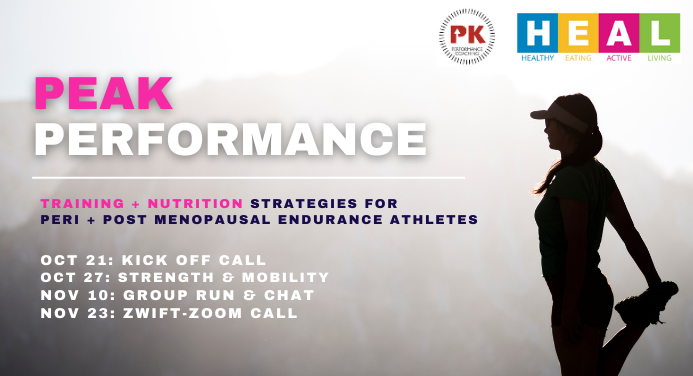Ask A Nutritionist (May/June 2010) – Caffeine
June 1, 2010
Success Story – Kris Richardson
June 4, 2010As athletes we are pre-disposed to increased inflammation in our muscles and joints from the added stress of exercise, especially if we are endurance athletes. The foods we eat can also contribute to increased levels of inflammation in our body, such as tissue inflammation in the gastro-intestinal tract, respiratory system or other body systems.
Most vegetables and fruit are anti-inflammatory in nature, containing vitamins, minerals and phytochemicals. Make sure you are taking in enough vegetables in you diet, aiming for at least 7 servings per day, especially dark green leafy vegetables and those that are brightly coloured. These are rich in beta-carotene, and vitamin C, which are both components in helping to reduce the inflammatory process.
Omega-3, Alpha-linolenic Acid, is one key natural anti-inflammatory that should be in every runner’s diet, as the body does not produce it. Omega-3 is found in high levels in flax seeds, flax seed oil, chia seeds, walnuts, as well as cold-water fish (salmon, herring, sardines, mackerel and tuna). Fish oil supplements, rich in EPA (eicosapentantenoic acid) can be taken to help reduce inflammation in the body. When choosing a fish oil supplement, it’s the amount of EPA that you are interested in, versus the size of the capsule. Dosage is dependant on the individual, however to reduce inflammation look for approximately 1000mg three times per day.
Another great natural option for inflammatory conditions is the herb turmeric. The active component of turmeric is curcumin which has been used in the treatment of sprains and internal inflammation. As a preventative measure you can use turmeric when cooking, however to really have a benefit in reducing inflammatory conditions curcumin supplements are necessary to get the dosage required to have a beneficial effect.
Bromelain is a protein-digesting enzyme found in pineapples and can be taken to help reduce inflammation. As a supplement Bromelain is best taken away from meals in dosages of about 1500-2000 mg per day to help reduce inflammation. As with curcumin, eating pineapples may help prevent inflammation, but likely won’t provide any benefits in acute situations.
And don’t forget the water. Water is key to elimination of wastes and a dehydrated body can often exacerbate an inflammatory state. To know if you’re adequately hydrated, check your urine to make sure it’s a pale straw colour or champagne colour throughout the day. As athletes you’ll need increased water intake to match your sweat output, so make sure you’re getting your 2-3 L of water daily.
Avoiding certain foods is also critical in reducing inflammation. Foods that are allergens, or that cause you sensitivities or intolerances, should be avoided as they increase inflammation and will aggravate the situation. Reducing foods and beverages such as cheese and full fat dairy, red meats, trans and hydrogenated fats, deep fried foods, alcohol, caffeine, sugar, as well as products containing artificial sweeteners, nitrates, and nitrites can be helpful in reducing inflammation.
As with all supplementation, it’s best to consult with a health care professional before beginning any protocol.



